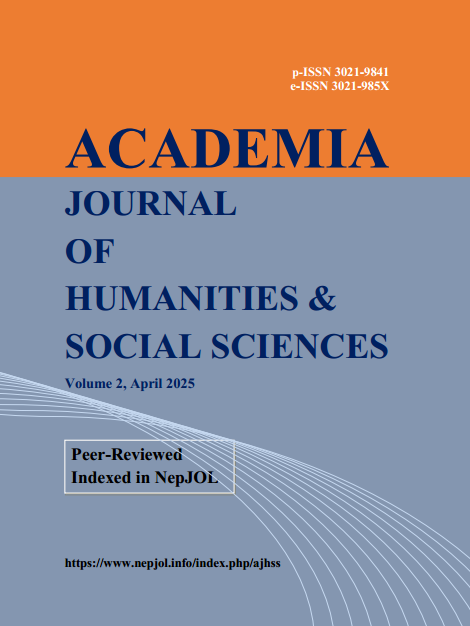The Procurement Process of World Bank Funded Projects and Government Funded Projects in Nepal: Exploring Sustainability through Procurement
DOI:
https://doi.org/10.3126/ajhss.v2i1.77167Keywords:
Development projects, public procurement, procurement process, low bidding, sustainabilityAbstract
In the Nepali construction industry, selecting the contractors based solely on the lowest bid is a common practice. While the low bids may initially appear cost-effective, they often lead to the long-term consequences that can have a negative impact on the project quality, sustainability, and timely completion. In response to the bids from the clients, the contractors often submit the abnormally lower bids, which do not align with the preliminary estimates of an engineer. This paper aims to identify the problems associated with the low bidding. Due to the low bidding practices, the contractors have to work with invariably low profit margins. As a result, they accept the low quality products, low quality goods, lack of utilization of skilled manpower, and low-quality constructions. The sub-contractors are also not benefited from this practice. Furthermore, there are various issues such as the front-loading effects associated with the low bid practices. However, the World Bank funded projects are not completely driven by the low bidding amount only. Unlike the Nepal Government funded projects, the World Bank funded projects analyze different constraints such as the uncertainty factors and cost overruns. This paper seeks to investigate a comparative study of a bidding processes of the Nepal Government funded projects and the World Bank funded projects. The study is exploratory in nature. The data have been collected from the secondary sources and key informant interviews (KIIs). Moreover, this study concludes that the concerned authorities need to rethink the procurement evaluation practices. Various strategic methods such as the “identify, clarify, analyze, and decide” method could be adopted for the best bid selection. There is an utmost need to understand that sustainable and qualitative works comes only at some cost by the stakeholders and the authority.





